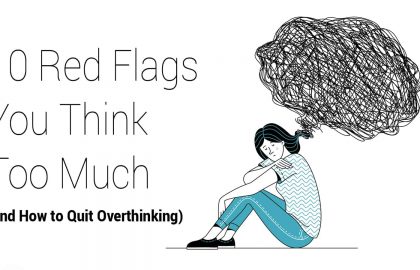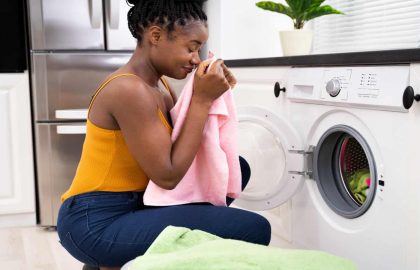Self-isolation can be disorienting. You may suddenly have a lot of free time and no way or place to spend it. That boredom can lead to a lot of different solutions, some of which are more ill-advised than others.
A lot of people attempt new things during social isolation. To some degree, that’s a positive way to keep your mind engaged, but when taken to an extreme, it can endanger you and those around you.
Here are four things you shouldn’t try during self-isolation.
1. Handy Projects
When you’re stuck at home, you’re more likely to notice problems around the house – and you’re also more likely to cause those problems since your home is now where you are almost 24/7. You may break things, notice more appliances that need maintenance, or simply wind up overusing something into its last legs.
There’s a reason that there are actual professionals who train specifically to do these types of tasks. You need to have an understanding of how these projects and a lot of underlying factors work before you can pull them off without a hitch. Here are some projects you just shouldn’t DIY:
· Glass Repair
Repairing glass is harder than it sounds, and it’s dangerous. When there is more than half an inch of damage in the glass, perhaps in the form of divots, holes, or chips, replacements and fixes need to be made – by a professional!
Repairing glass often involves the pouring of resin into the cracks and broken areas. It sounds simple, but the process is far from it. This is because the way resin sets may vary based on factors such as humidity and temperature. Resin can contract and expand, so putting too much resin can cause it to harden into an even worse chip, hole, or divot, thus becoming more of a safety concern.
Even glass repair kits aren’t fully reliable. For safety purposes, get a professional to do the job.
· Remodeling
It’s tempting to finally get around to fixing or remodeling your home when you have all this free time in social isolation. But projects for home improvement and reconstruction aren’t all safe to do on your own. The most basic DIYs are doable, but more complex or ambitious projects require a more expert hand.
Projects, where you need to work from heights, can put you in danger without the right equipment. Those that involve your home’s essential systems could wind up damaging them. New construction projects could be too weakly built and wind up in danger of collapsing. Difficult-to-use tools can cause injuries. All in all, if you’re looking to do remodeling, you should leave it to the pros.
· Plumbing
Plumbing is essential to a home, and it’s tempting to want to fix plumbing issues by yourself, especially since you may not be able to hire a professional but could need plumbing work done urgently. You should consider the complexity of the job first.
For example, opening the catcher of a sink and emptying it out to stop clogging is a simple job that you’re unlikely to need too much expertise for. The same goes for unclogging a toilet that just needs a little help.
But when it comes to things like replacing pipes, fixing issues that you aren’t 100% sure about, or taking apart a toilet bowl to figure out why it’s leaking, you had better wait for professionals instead. Even in times of isolation, plumbers are essential workers who will likely be available for hire – but think carefully about how urgently you need the issue fixed before leaping.

2. Visiting Friends
Loneliness is one of the critical problems with social isolation. Even introverts who prefer their own company within their own four walls need some degree of social interaction. Those who led vibrant social lives or are extroverts that thrive in social situations will likely feel this pain even more.
There’s undoubtedly much to be said about loneliness and positive thinking, as well as mental and physical health in general, and these effects can linger for months. Potential problems include:
- Higher mortality rates
- Higher risk of mental degeneration
- Increase symptoms of depression, anxiety, stress, and anger
In this time, you might be tempted to simply sneak out of your social isolation and meet with a friend, especially if you’re young or think you’ll be safe. Sometimes all you want to do is just talk for a bit, or hug someone.
But these actions put your life and the lives of others at risk. Even those who don’t experience symptoms may be carrying viruses. So you or your friend could have the disease without even realizing it since you don’t usually seek a test that could come back positive when you have no symptoms.
Instead of visiting a friend in person, you can:
- Text
- Take part in video calls.
- Play online games together
- Watch a movie or series at the same time.

3. Appearance-Related Changes
There are a lot of jokes surrounding drastic appearance-related alterations during times of self-isolation. There’s a scientific reason for this, too – when a lot of things feel out of control, people attempt to take control over whatever they can to regain some positive thinking. This can result in changing aspects of oneself that wouldn’t have been changed otherwise.
It’s usually fine to make some changes – experimenting with new styles of makeup or fashion, using henna or non-toxic body paint to make aesthetic changes, and even dyeing hair are all relatively safe options for changes that can be made. But there are some things you have to leave to the professionals. Here are some examples:
· Waxing
Waxing is already such a painful process in itself when done by professionals, and even professionals can leave you with some bleeding or wounds. Trying to do it all yourself can potentially be harmful to you, and without an expert on hand, you’ll have nowhere to go for help.
If you’re aching to remove some hair, try shaving first, or get your hands on some hair removal cream. And if you really are that desperate for a wax, stick to less difficult areas like your legs.
· Haircuts
Cutting your own hair seems to be a common theme in self-isolation, especially among those who usually have short hair that is now getting out of control. It’s tempting to reach for the scissors and get to snipping without the help of a pro!
It’s usually pretty harmless to try cutting your hair on your own, but you have to be prepared for the consequences. Ask yourself if you’d feel alright with an absolutely awful haircut that you have to see in the mirror every day in self-isolation. More likely than not, that will affect your positive thinking. That said, if you’ve cut your hair on your own with satisfactory results before, there’s no reason you can’t try doing so again now.
· Dermaplaning
Dermaplaning isn’t a widespread form of skincare, but that doesn’t mean there aren’t people who do it. Therefore, they might be tempted to try it on their own. Dermaplaning refers to the act of shaving your skin very close to your face to remove peach fuzz and dead skin.
This very close shaving means you risk injuring yourself with cuts and even permanently causing paralysis and other issues due to incorrect action. Luckily, there are DIY-safe options that, as long as you perform them gently, can work as alternatives. Microneedling and dimmer rollers are examples of safe options that can do the trick without professional aid.
· Piercings
Some people get a feeling of adrenaline surge when they think about piercing their skin. But it’s a hazardous process, and when done unprofessionally, it can lead to medical complications involving infections, nerve damage, and other severe conditions.
Even if you do manage to escape medical consequences, you still run the risk of uneven piercings, lousy choice of piercing location, and incorrect aftercare that can cause the hole to close again. Let’s leave the piercings to the experts.
· Botox
Almost no one thinks of Botox as something safe to do themselves, but it warrants a reminder regardless. When someone is used to regular botox treatments, being alone and unable to access that treatment might make them choose to attempt it at home.
The only way to access non-official Botox is via the black market, which contains unregulated products. You don’t know for sure what’s in any of those kits, and they can wind up paralyzing you or severely damaging your face through necrosis, infections, and irreversible damage.
Even if you do manage to get your hands on a genuine Botox product, chances are you won’t know how to inject it properly. This is something you need to leave to professionals.

4. Working Longer Hours
If you’re fortunate enough to be working from home with the same or close to the same salary during self-isolation, you need to adjust to your living space now functioning as your workspace. For those who aren’t used to working from home, this can cause decreased productivity, but it can also cause the complete opposite – like being unable to switch your brain’s work-mode off.
When your personal and professional lives collide, you may begin to have trouble putting a clear separation between them. Combine that with self-isolation boredom, and you may feel the urge to work non-stop. This habit isn’t a positive one, and it can mess up your sleep cycle while adding to depressive symptoms.
Work the same number of hours you worked before self-isolation. If you’re looking for a way to fill your time, consider these options instead:
- Pampering yourself with self-care
- Do a little spring cleaning.
- Engaging in a hobby you don’t usually have time for
- Learning a new skill
- Relaxing with a book, TV show, or game you’ve wanted to get into

Final Thoughts On Some Things You Shouldn’t Try During Self-Isolation
Self-isolation is difficult as it is. You don’t need to add to its struggles by trying out difficult or dangerous things at this time! Leave hard jobs to the professionals, abide by self-isolation guidelines, and take care of your mental health first.






